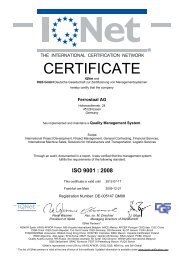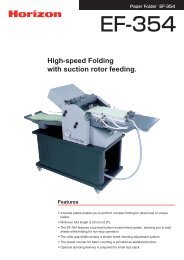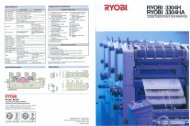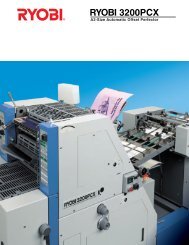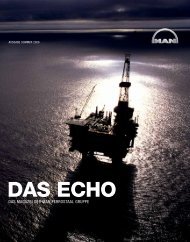THE ECHO - Ferrostaal
THE ECHO - Ferrostaal
THE ECHO - Ferrostaal
You also want an ePaper? Increase the reach of your titles
YUMPU automatically turns print PDFs into web optimized ePapers that Google loves.
<strong>THE</strong> <strong>ECHO</strong> 1/2006 15<br />
African oil and gas deposits constitute approximately 10 percent<br />
of all known reserves worldwide. With oil prices climbing, it is<br />
becoming increasingly more cost-effective to produce oil and gas<br />
in deep waters off Africa’s west coast, where currently little or no<br />
production is taking place. However, the big oil companies discovered<br />
Africa’s potential long ago. With state-of-the-art technology, operating<br />
offshore platforms and producing oil and gas in deep waters is no<br />
longer a problem.<br />
The only problem is that there aren’t enough production<br />
platforms. Due to the strong growth in the demand for oil, the<br />
manufacturers of these platforms are fully booked up several<br />
years in advance. “Currently, if an oil company wants to build an<br />
oil or gas platform, they will have to wait for anything up to six<br />
years,” says Horst Weretecki, who is responsible for offset business<br />
at MAN <strong>Ferrostaal</strong>. In the case of production off the coast of<br />
Africa, an additional constraint is the fact that each new platform<br />
has to be hauled over thousands of kilometres by tugboats. Africa<br />
currently has no shipyards for the construction of oil and gas<br />
platforms.<br />
According to Weretecki, the situation doesn’t look any better for<br />
existing platforms: “If an oil company that wants to produce oil<br />
on the West-African coast needs to maintain or repair a large<br />
platform, the platform has to be brought to Europe, the US, Dubai<br />
or Singapore to have the work done. There simply isn’t any<br />
company in Africa who can do the job here.” In the best-case<br />
scenario, the distance is 8,000 kilometres. In the worst, 16,000. It<br />
all depends on which location currently has capacity. “Even at<br />
that, you are lucky to even get a free slot because these shipyards<br />
also get booked up very quickly. That can really hurt your purse.<br />
For every day that a platform is out of action, you are losing<br />
approximately 400,000 to 500,000 US dollars in rent.” This is<br />
why MAN <strong>Ferrostaal</strong> is now working on a project to remedy this<br />
situation.<br />
In South Africa, the climate is ripe for building an industry for the<br />
construction and maintenance of oil platforms. All of the key<br />
partners for this project are strongly positioned in the country:<br />
shipyards that focus on ship construction and others that focus<br />
on repair, companies in the oil and gas industries, companies that<br />
can deliver and maintain the technical equipment for platforms,<br />
and civil engineering companies that can provide the infrastructure<br />
for the harbour facilities. The country also has partners to finance





